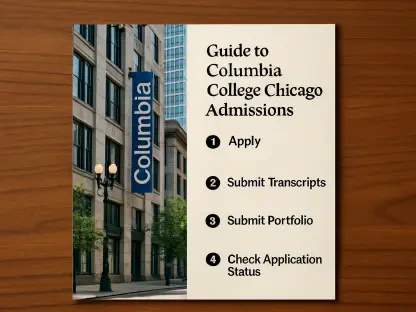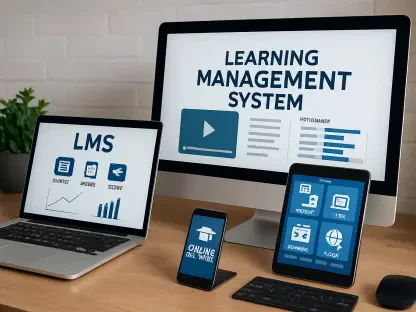In the heart of Mississippi, the Meridian Public School District (MPSD) has carved out a remarkable record of academic consistency, earning the designation of “successful” from the Mississippi Department of Education for four consecutive years. This achievement, rooted in the district’s performance on the annual Mississippi Academic Assessment Program (MAAP), reflects a deep commitment to excellence in subjects like English Language Arts, Mathematics, Science, and U.S. History. The sustained recognition speaks volumes about the collaborative efforts of students, teachers, staff, and families within the community. Beyond just a label, this success highlights a broader narrative of resilience and determination to uphold educational standards in a state grappling with evolving challenges. What lies behind this consistent performance, and how does MPSD navigate the complexities of a changing educational landscape? This exploration delves into the factors driving the district’s achievements and the hurdles it faces.
Unpacking the Pillars of Academic Stability
Consistent Performance Metrics
The foundation of MPSD’s success lies in its ability to maintain a steady “C” grade on the state’s A-F accountability scale for the current school year, mirroring the previous year’s result. This grade, determined by critical indicators such as student proficiency, academic growth, and graduation rates, showcases a balanced performance across various metrics. District Superintendent Amy Carter has underscored that this rating is more than a mere statistic; it embodies the collective progress and unwavering resolve of the entire educational community. The emphasis on growth over time reveals a strategic focus on incremental improvement rather than fleeting gains. Moreover, this stability indicates robust systems in place that support students and educators alike, fostering an environment where learning remains a priority despite external pressures. Such consistency is no small feat in a system where fluctuations are common, pointing to a deliberate and sustained effort to uphold academic standards.
Community and Leadership Collaboration
Another vital element in MPSD’s sustained success is the synergy between community involvement and strong leadership. The district benefits from a shared vision where families, educators, and administrators work hand-in-hand to prioritize student outcomes. This collaborative spirit ensures that policies and initiatives are not only implemented but also embraced at every level, creating a supportive network for academic achievement. Leadership plays a pivotal role by setting clear goals and fostering an atmosphere of accountability, ensuring that challenges are met with actionable solutions. Regular engagement with stakeholders helps tailor educational strategies to the specific needs of the student body, reinforcing trust and commitment. This partnership model has proven effective in maintaining focus on long-term objectives, even as short-term obstacles arise. By aligning efforts across all sectors of the district, MPSD demonstrates how unity can drive consistent educational progress in a dynamic environment.
Addressing Challenges and Embracing Innovation
Navigating Declines and Varied School Outcomes
Despite the district-wide recognition, MPSD faces significant challenges, as evidenced by varied performance at the individual school level. For instance, Meridian PreKindergarten Academy experienced a notable drop of 73 points, shifting from a “C” to a “D” grade, while G.W. Washington Carver saw a lesser decline of 26 points but retained its “D” rating. These disparities highlight underlying issues that require targeted interventions to address specific academic gaps. Statewide trends also paint a concerning picture, with a general decline in mastery levels on end-of-year exams, signaling a reversal of prior progress. State Superintendent Lance Evans has stressed the urgency of tackling these setbacks, using accountability grades as a roadmap for improvement. For MPSD, this means balancing overall stability with focused efforts to uplift underperforming schools, ensuring that no student is left behind in the pursuit of district-wide success.
Adapting to Evolving State Standards
Looking ahead, the Mississippi Department of Education is revising its accountability framework to better reflect college and career readiness, with updates slated for the upcoming year. These changes will incorporate factors like industry certifications and military readiness while raising grading standards and adjusting assessment components. MPSD is proactively aligning with these shifts through initiatives at the secondary level, such as dual-credit partnerships with local colleges and innovative programs at Meridian High School. Recognized as a school of innovation, the high school’s middle college partnership has boosted acceleration metrics for the current academic year. This forward-thinking approach ensures that students are equipped for diverse post-graduation pathways, reflecting a commitment to redefine success beyond traditional academic measures. By embracing these state-level changes, the district positions itself as a leader in adapting to new educational paradigms, preparing students for a rapidly changing world.
Building Resilience for Future Progress
Reflecting on the past, MPSD’s journey over the last four years shows a steadfast dedication to maintaining high standards amid fluctuating challenges. The district’s ability to secure a “successful” rating consistently is not merely a product of chance but a result of deliberate strategies and community-wide support. Even as specific schools grapple with performance dips, the overarching narrative is one of perseverance, with tailored responses to setbacks shaping a path forward. Statewide educational declines serve as a reminder of the broader context in which MPSD operates, yet the district’s proactive steps in aligning with innovative accountability measures stand out as a beacon of adaptability. Looking to the future, the focus must remain on targeted support for struggling schools, sustained collaboration, and a continued embrace of evolving standards to ensure that every student benefits from a robust and forward-looking educational system.









